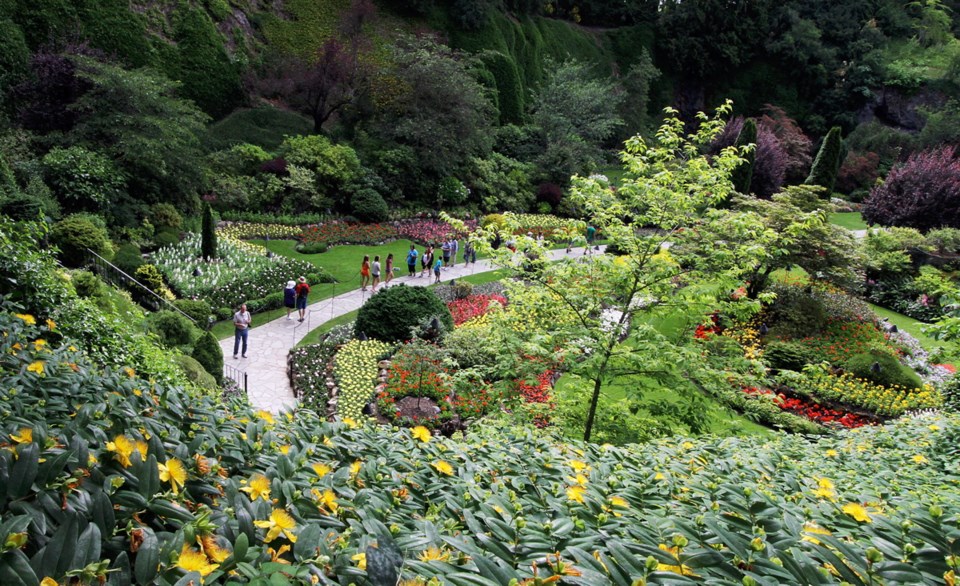An international environmental organization is applauding a Butchart Gardens’ initiative to ban single-use plastic bottles.
“Champions like Butchart Gardens have a great platform to raise these important issues,” said Michelle Hall, chairwoman of the Pacific Rim chapter of the Surfrider Foundation.
She was responding to the tourist attraction’s ban-the-bottle pledge that takes effect today. Its launch was timed to draw attention to World Water Day.
Bob Parrotta, Butchart Gardens’ director of food services, said the intention was to increase awareness about the threat plastic poses to the environment.
“It’s a day to celebrate water and to prepare for how we manage water in the future,” he said.
Visitors will be encouraged to bring their own water bottles that can be filled at one of four double-filtered water stations. Each station has a drinking fountain, bottle filler and dog-water dish.
Reusable Butchart Gardens “keepsake bottles” can also be purchased.
Environmental measures at Butchart Gardens include a self-sufficient series of reservoirs and wells for irrigation, recirculating water from streams in its Sunken Garden, collecting and storing of millions of litres of rain water that runs off parking areas, and routinely mulching all its borders to conserve moisture.
It has extensive recycling programs, with about 29 metric tonnes of cardboard, five metric tonnes of glass, metal and paper, and 57,000 deposit beverage containers recycled each year.
As well, Butchart Gardens has an integrated pest management program, uses biodegradable bags in its gift shop, has low-flow toilets and uses water-diluted vinegar for most cleaning.
The ban-the-bottle action follows initiatives by other businesses on Vancouver Island.
Tofino’s Wolf in the Fog restaurant, for instance, was one of 41 businesses that pledged to discontinue use of plastic straws last year.
It was part of Surfrider Foundation’s Straws Suck campaign to reduce ocean waste and the amount of debris washing up on the waterfront.
The foundation’s Pacific Rim chapter, which hosts beach cleanups throughout the year, has been encouraged by the response in its efforts to eliminate plastic bags, Hall said.
The organization has launched a BYOB campaign, challenging the community to make 1,000 reusable bags by March 24 as part of its Pacific Rim Whale Fest event in the Tofino and Ucluelet area.
“More and more organizations and business are looking to sustainable practices that not only reduce our addiction to plastic but work in harmony to protect what we love,” said Hall.
“We are faced with over 100 decisions a day concerning plastic, these low-hanging fruits like plastic bottles, plastic straws and plastic bags. We can create conversations from this place, on how we change the mindset for this disposable lifestyle most of us have been led into.”
According to Ottawa-based Polaris Institute, the amount of oil used for the production of bottled water in 2010 was the equivalent of what it would take to put one million vehicles on the road.
The objective on World Water Day, designated as such in 1993 by the United Nations, is to raise awareness of the need to take action to combat the global water crisis.
According to UN data, 1.8 million people around the world use a source of drinking water that is contaminated with feces, putting users at risk of contracting cholera, dysentery, typhoid and polio.
The organization’s Sustainable Development Goals, launched in 2015, include a target to ensure everyone has access to safe water by 2030.



